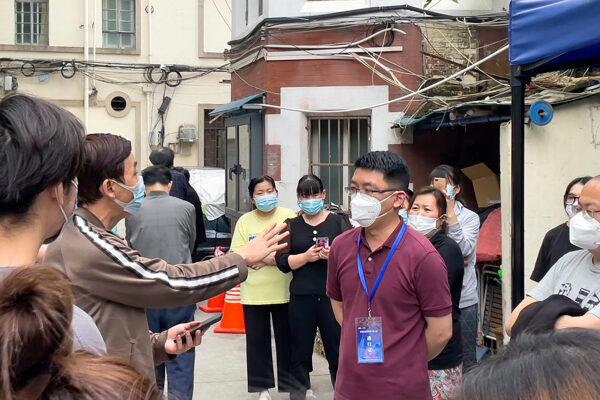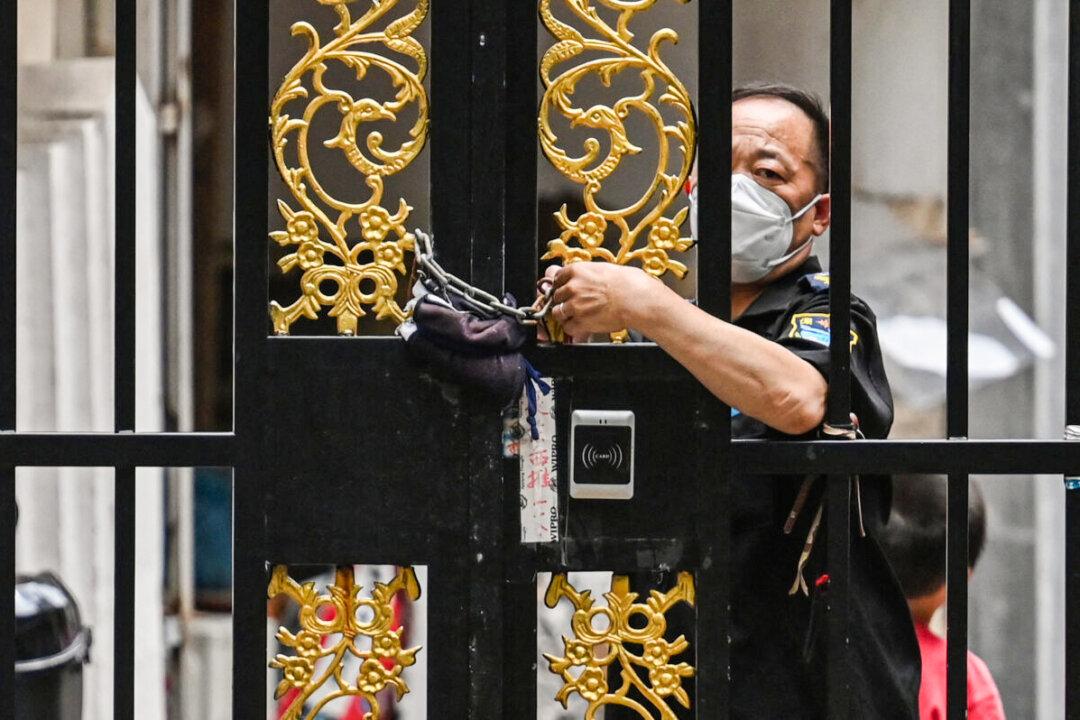The Chinese Communist Party’s strict zero-COVID policy for China has caused many disasters to its populace. Amid mounting public criticism, the regime has adopted tactics to deal with any opposition, resulting in further human rights abuses by the CCP on top of its disastrous pandemic policies.
‘Judicial Authentication’
Ji Xiaolong, a Shanghai resident, received a police notice on June 10 notifying him that his online post was under “judicial authentication.”As an outspoken civil rights activist, Ji has been regularly visited by his local police in recent years due to his interviews with foreign press, such as Radio Free Asia, NTD, Radio France Internationale, and Taiwan’s Central News Agency.
“The police have locked all my posts for evidence to bring charges against me,” Ji explained to the Chinese edition of The Epoch Times on June 10.
Ji said that half a dozen police came to his home on June 4 to escort him to the police station for interrogation.
Seeking an End to Lockdowns
On April 2, Ji posted a petition on Chinese social media Weibo and WeChat, as well as Twitter, calling “for a halt to the pandemic control policy, for the distribution of aid, and for the resignation of officials who had failed their duty to remedy the unfolding disasters.”An IT professional by trade, Ji has for many years aspired to speak out against the human rights abuse in China. He was just been released on Feb. 9 from three years and six months imprisonment over the crime of “picking quarrels and provoking trouble”—a typical charge used by the one-party state apparatus on activists in China.
He was jailed over his “Public Restroom Revolution”—handwriting slogans such as “Down the Chinese Communist Party” and “Return Power to the People” on restroom doors in hospitals and colleges.
Postings on Social Media Priority for Police
A social media post by Shanghai resident Song Jiahong on the ruling party’s pandemic policies made him a target for the police, including for the law enforcement officers in an urban district more than 25 miles away.In his post, Song questioned the motivation behind the regime’s mass PCR tests. “Is it scientific, or is it for the officials to save face?” he asked.
He said that two police from Huangpu District, more than 25 miles away, visited his home in the suburban Songjiang District on June 9.
Song rejected the police’s request to question him, saying that he was not under the jurisdiction of Huangpu District.
The police demanded to check his cell phone and asked if he had any interactions with the press.

He said the same police station has repeatedly dispatched police to his home, but he rejected their requests each time.
Forced Psychiatric Detention
Ding Yan, born in the 1980s, is an owner of a barbecue restaurant in Nanjing City.On the early morning of May 11, she posted to social media an open letter addressed to communist party leader Xi Jinping. That evening, the police sent her to a local mental hospital.
She’s been missing since that day, even though hospital records say that she was dismissed on June 1.
This is the 12th time that Ding has been detained by the authorities in a mental institution.
Previously, Ding had spoken out about Wuhan’s mass lockdown. She blamed Xi for the cruel lockdown policy. She also criticized Tencent’s founder Pony Ma for blocking WeChat accounts to assist with the regime’s censorship.
Mr. Zhang, a Shanghai resident, expressed sorrow for Ding’s situation.
“She had a false hope in the regime,” he said of her letter writing. “But the regime is to tackle the person who brings up the issue, rather than the issue itself.”




